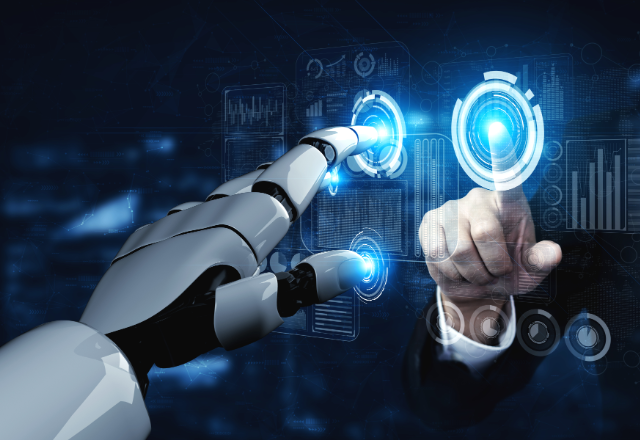

Artificial intelligence (AI) has become a transformative force in all walks of life, and education is no exception. The integration of artificial intelligence technology in the education field is completely changing traditional teaching methods and opening up new ways for personalized learning. This article explores the impact of artificial intelligence on the future of education and its potential benefits for students and educators.
Personalized Learning: One of the main advantages of artificial intelligence in education is its ability to provide a personalized learning experience. AI systems can analyze vast amounts of data about individual students, including their learning preferences, strengths and weaknesses.
This information enables artificial intelligence algorithms to create tailored lesson plans, adaptive assessments and content recommendations, ensuring each student receives personalized instruction. By meeting individual needs, AI can increase student engagement, improve learning outcomes, and foster more efficient educational experiences.
Intelligent tutoring system: Artificial intelligence can act as a virtual tutor, providing real-time feedback and guidance to students. Intelligent tutoring systems use artificial intelligence algorithms to understand student responses and adjust teaching strategies accordingly. These systems can diagnose learning gaps, deliver targeted interventions, and monitor progress. With AI tutors, students receive instant support and personalized guidance, promoting independent learning and helping students overcome challenges.
Automated Grading and Feedback: Grading assignments and providing feedback can be time-consuming for educators. Artificial intelligence technology simplifies this process by automatically grading tasks. Machine learning algorithms can assess and evaluate student work, such as essays or multiple-choice tests, with high accuracy. This frees up teachers’ time so they can focus on more meaningful interactions with students. Additionally, AI can generate detailed feedback that highlights areas for improvement and guides students to achieve better results.
Intelligent content creation: Artificial intelligence is revolutionizing content creation by generating tailored learning materials. Through natural language processing and machine learning algorithms, artificial intelligence can create interactive and engaging educational content. This includes generating quizzes, designing interactive simulations, and developing virtual reality experiences. AI-generated content can help educators save time while providing students with an immersive and dynamic learning experience.
Predictive Analytics and Early Intervention: AI’s predictive analytics capabilities can identify students who may be falling behind or struggling academically. By analyzing data patterns, AI algorithms can detect early warning signs and alert educators to intervene proactively. This allows for timely intervention, personalized support and the implementation of targeted interventions to help students succeed.
Enhanced management tasks: Artificial intelligence can assist with management tasks such as scheduling, organizing data, and managing resources. Intelligent systems can automate administrative processes, freeing up time for educators to focus on teaching and student engagement. AI chatbots can also provide instant support and answers to frequently asked questions, reducing administrative burden and increasing efficiency.
Transforming traditional classrooms into dynamic learning environments is a huge potential for the integration of artificial intelligence in education. Artificial intelligence brings many benefits to students and educators, such as personalized learning experiences and intelligent tutoring systems.
With the help of artificial intelligence technology, educational resources can be more accessible, more attractive, and more effective. It is critical to balance technology with human interaction to ensure that AI enhances, rather than replaces, the role of teachers. As education moves into the future, harnessing the power of artificial intelligence will be critical to educating the next generation of lifelong learners.
The above is the detailed content of The impact of artificial intelligence on future education. For more information, please follow other related articles on the PHP Chinese website!




